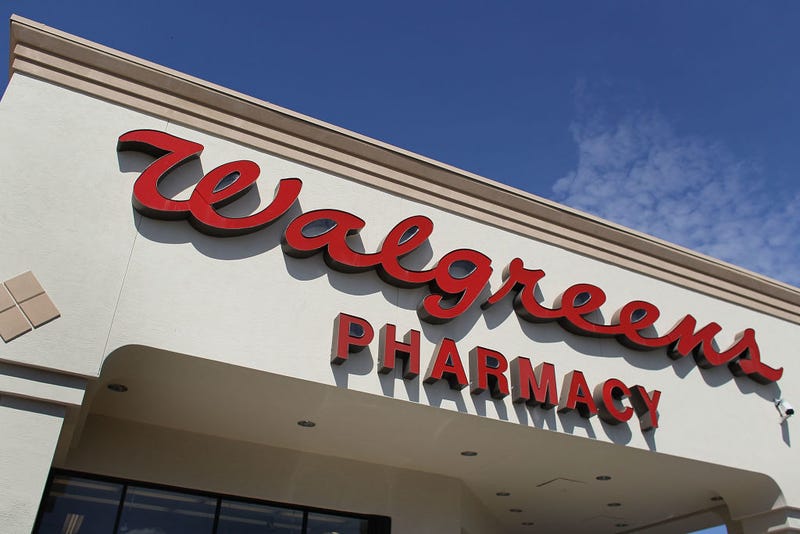
Walgreens will pay $230 million to the city of San Francisco for its role in the city's opioids crisis.
Last year, a federal judge found the pharmacy chain failed to prevent misuse of prescription painkillers, including oxycontin and fentanyl, by ignoring "red flag" prescriptions.
The settlement is the largest ever awarded to a local government.
Under the agreement, Walgreens will pay $229,610,000 over the course of 14 years, with the vast majority coming in the first eight years. City officials say the money will go towards fighting opioid abuse.
"Opioids have wreaked havoc across our nation leading to immense suffering and untold damage. Cities like San Francisco have shouldered much of the burden of the opioid epidemic," City Attorney David Chiu said in a statement. "This historic agreement ensures Walgreens is held accountable for the crisis they fueled and our city receives appropriate resources to combat the opioid crisis and bring relief to our communities."
San Francisco brought the lawsuit in 2018 against multiple opioid manufacturers, distributors and dispensers, alleging that their corporate practices fueled a widespread surge of opioid-related addiction and overdose in San Francisco, creating an ongoing public nuisance in the region.
Over the course of the litigation, all defendants except Walgreens elected to enter into settlement agreements with the plaintiffs. The City Attorney's Office secured a $10 million settlement agreement with pharmaceutical company Endo and a $54 million settlement agreement with opioid manufacturers Allergan and Teva. The City also approved settlements worth approximately $11 million from CVS, $6 million from Walmart, and $45 million settlement from opioid manufacturer Johnson & Johnson and distributors McKesson, Cardinal, and AmerisourceBergen. Additionally, San Francisco is likely to receive funding from the bankruptcy estates of Mallinckrodt Pharmaceuticals, Purdue Pharma and the Sackler family.
After an 11-week trial in August 2022, a judge found Walgreens was liable for fueling the opioid crisis by over-dispensing opioids without proper due diligence and failing to identify, report and halt suspicious orders as required by law.
"The evidence at trial established that from 2006 to 2020, Walgreens pharmacies in San Francisco dispensed hundreds of thousands of red flag opioid prescriptions without performing adequate due diligence. Tens of thousands of these prescriptions were written by doctors with suspect prescribing patterns. The evidence showed that Walgreens did not provide its pharmacists with sufficient time, staffing, or resources to perform due diligence on these prescriptions," U.S. District Judge Charles Breyer wrote in his ruling. "It is more likely than not that Walgreens pharmacies dispensed large volumes of medically illegitimate opioid prescriptions that were diverted for illicit use and that substantially contributed to the opioid epidemic in San Francisco."
The remedy phase of the litigation was set to begin last fall, but Walgreens and city officials entered settlement negotiations instead. As a result of the settlement, the litigation against Walgreens will be dismissed.
All combined, the City Attorney's Office secured over $350 million in cash payments, benefits, and fees from the opioid industry to go towards opioid abatement and overdose prevention in San Francisco.
"San Francisco and the Department of Public Health will use these critical funds to save lives and bring people into treatment," said Dr. Grant Colfax, San Francisco Department of Public Health Director. "As we address the serious and continued impacts of fentanyl to our city, we can help many San Franciscans on their journey to wellness and recovery."
From 2006 to 2014, San Francisco County saw more than 163.6 million opioids distributed, enough for 22 pills per person per year, according to the City Attorney's Office. Between 2015 and 2020, San Francisco saw a 478% increase in opioid-related overdose deaths. In a typical day at the Zuckerberg San Francisco General Hospital Emergency Department, approximately 25% of visits are opioid-related, officials said.
Follow KNX News 97.1 FM
Twitter | Facebook | Instagram | TikTok


